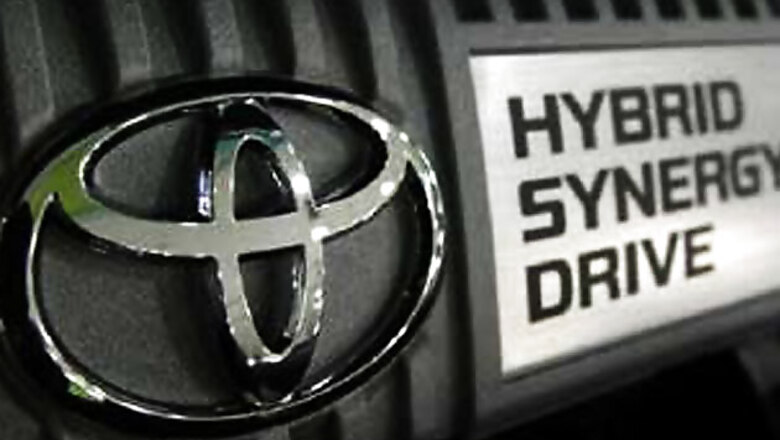
views
Washington: US auto safety regulators are turning to NASA scientists for help in analysing Toyota Motor Corp electronic throttles to see if they are behind unintended acceleration, Transportation Secretary Ray LaHood said on Tuesday.
In addition to the work by the National Aeronautics and Space Administration, LaHood also said a experts from the National Academy of Sciences will lead a separate study of unintended acceleration across the auto industry, a broader issue raised by congressional lawmakers at recent hearings on Toyota.
"We are determined to get to the bottom of unintended acceleration," LaHood said in an interview with Reuters.
The Transportation Department's National Highway Traffic Safety Administration is just beginning its review of Toyota electronic throttles, which have come under heightened scrutiny following the recall of more than 8.5 million Toyota and Lexus vehicles globally over the past six months.
Both US safety regulators and Toyota have faced scrutiny about whether either did enough to investigate driver complaints of possible electronic throttle problems and other safety issues in recent years.
The NHTSA review is to be completed by late summer after which the agency would determine whether a formal investigation of Toyota throttles is warranted.
Such a probe would set in motion a process that could lead to a larger recall for Toyota just at the moment when the automaker is struggling to win back consumer trust and lost sales.
Toyota has repeatedly said that it is confident in the safeguards built into its vehicle electronics and has seen no evidence that they have failed on the road. LaHood said the timetable would not likely change unless "something very dramatic" happened with the NASA work.
Other investigations dating to 2004 found no throttle defect, but the agency handled those cases internally.
SEPARATE REVIEWS Toyota, too, has asked an outside engineering consultant, Exponent, to review its throttles. Preliminary findings of that study have found no problems. The Transportation Department inspector general is investigating NHTSA's and Toyota's handling of investigations into unintended acceleration. LaHood also said the agency watchdog would also determine whether NHTSA has appropriate staffing and expertise to handle sophisticated investigations into areas like vehicle electronics and computers.
Nine NASA scientists would bring expertise in electronics, eletromagnetic interference, software integrity and complex problem solving to the Toyota review, Transportation Department officials said. LaHood has maintained that NHTSA could handle the analysis itself but said suggestions from lawmakers at congressional hearings prompted him to consider outside help. "We've used them before. We've heard that they may have some influence," LaHood said of his decision to ask NASA to help.
NHTSA has teamed with NASA in the past on studies of electronic stability control and airbags. The broader industry review of unintended acceleration by the National Academy of Sciences' National Research Council is expected to take about 18 months and is separate from the NASA analysis.
Separately, NHTSA is also investigating whether Toyota met requirements for providing regulators with recall-related information in a timely way. There is no schedule for completing that investigation which could lead to a fine of up to $16.4 million.



















Comments
0 comment